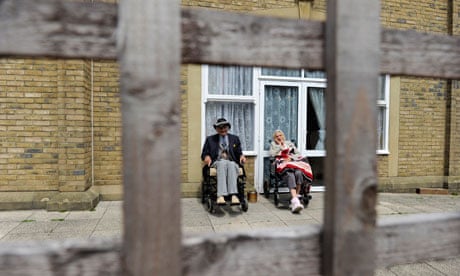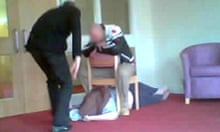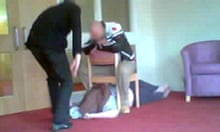Southern Cross will soon cease to exist, as landlords take back leases linked to the firm's 750 care homes because it can no longer afford the rent. New operators will be brought in and Southern Cross will be remembered as a financial failure that heaped shame and ignominy on the sector. But how did it come to this? Britain's largest care homes operator, with 31,000 residents, was once a force in the land.
It's easy to see why. Not so long ago, running care homes for the elderly and sick seemed an easy way to make money in a country where the population was greying at a faster rate than anyone could remember. Most elderly residents were bankrolled by local authorities, offering private-sector operators a steady stream of income from the taxpayer.
Interest rates were low, allowing companies to borrow to expand their estates at a time when banks were falling over themselves to furnish loans. Councils were feeling generous and agreed annual fee increases ahead of the rate of inflation, making it simple for operators to cover their costs.
Against this background, Southern Cross prospered. A former executive remembers: "It sounds corny, but it really did seem we were in a land flowing with milk and honey."
By 2003, the company owned more than 100 homes and was attracting the attention of investment bankers. "You could see the firm was going places – management was ambitious and as it grew, so did the financial returns," said the former executive.
A year later, US private equity group Blackstone acquired Southern Cross in a deal worth £167m. Ludicrously, as it turned out, Blackstone supported a sale-and-leaseback business model that was all too common at the time.
Under this system, Southern Cross's operating company and property assets were separated. It was blatant financial engineering but it made sense on paper: acquisitions could be financed by spinning off the bricks and mortar into a different company, selling it on to property investors and then using the proceeds to buy more care operators.
Blackstone's biggest transaction was the £564m purchase of NHP, a property company that owned the leases to many of Southern Cross's homes. Blackstone later sold NHP for £1.1bn to a fund backed by the Qatar Investment Authority. As with other deals, Southern Cross's Middle Eastern landlord insisted on upwards-only annual rent increases, of around 2.5%.
As long as the boom lasted, Southern Cross was able to generate large amounts of cash and invest in its homes to make them attractive to local authorities. The sale-and-leaseback model worked fine when property prices were heading north: property players were happy to invest, and Southern Cross was willing to agree to upwards-only rents as it could borrow at cheap rates.
But after the financial crisis, Southern Cross was hit by a triple whammy: falling property prices put the brakes on what proved to be a reckless expansion programme; tough economic conditions saw local councils freeze or lower fees for residents; and worst of all, the company was now locked into rising rents at a time when income was being squeezed. It was a recipe for disaster.
Even during the best of times, profit margins in the care homes business are thin; as long as occupancy rates remain comfortably over 85%, a company that leases its homes from landlords can make good profits. But below that level, it becomes harder to break even, leaving businesses vulnerable to relatively small changes in the trading climate.
Research has shown that Southern Cross's occupancy rates fell every year from 2006. And it cut capital expenditure in its homes, hitting standards of care for residents, making them less appealing to local authorities.
A version of the sub-prime crisis was hitting the sector and other operators felt the pinch, with several seized by creditors. Barclays Capital, for instance, took over Care Principles, a company that looked after patients who had been sectioned under the Mental Health Act.
At Southern Cross, deteriorating standards of care were seeping into local media reports. By 2009, Southern Cross homes were attracting the attention of the Care Quality Commission. A report in the Observer last month disclosed that nearly 30% of the group's 581 centres in England had been served with improvement orders by CQC inspectors.
The tide had turned against Southern Cross for another reason. Local authorities were trying to care for more elderly and frail people in their own homes, so by the time they arrived at residential centres, their condition had deteriorated to include dementia, immobility and incontinence, which are more expensive to care for. Southern Cross was forced to take on more overheads as revenues declined, and all the while there was the ticking timebomb of a rising rent bill, which had reached £230m a year by January.
Blackstone left long before the bust. It floated the company for £640m in 2006 and sold its last Southern Cross shares a year later. In total, the private equity firm made a profit of £1.1bn on its original investment. Others were left to pick up the pieces.
Jamie Buchan, the chief executive who took over two and a half years ago, never really had a chance. He was reluctant to talk about what had gone wrong yesterday, but in May he told the Financial Times: "I've never come across this lease structure before. The model doesn't work through hard times."
The failure of Southern Cross has re-ignited the debate about whether private-sector operators can be trusted to provide social care. Unions, such as the GMB, are certain the idea is a bad one. Amanda Gearing, a regional organiser in the West Midlands, says: "Residential services should be left to local authorities, not companies with shares listed on the stock exchange. They will always put profits before people." Labour party stalwarts, like Michael Meacher, agree.
But Peter Hay, president of the Association of Directors of Adult Social Services, says: "Not all private care is bad. Private companies have pumped in £19bn of investment in the last 20 years. You would never have got that from the public sector. Also standards are getting higher. In 1991, I remember a local authority home where there were six men to a bedroom and 12 sharing a bathroom. These days having your own room and facilities is becoming the norm."
But Emily Thornberry, shadow health minister says: "Social care cannot be left to uncontrolled market forces."
She and others believe better supervision is vital. But surprisingly, no body in the UK seems to have direct responsibility for ensuring private care companies avoid risky business models of the kind that sank Southern Cross.
Health minister Paul Burstow says the new NHS regulator, Monitor, could perform such a role. At the Department of Health, officials are working on proposals to require care home operators to take out bonds underwriting the continued care of their residents in the event of their financial failure.
These are steps in the right direction, but more needs to be done because one thing seems sure: without tighter regulation and better policing, there will be more Southern Crosses.






